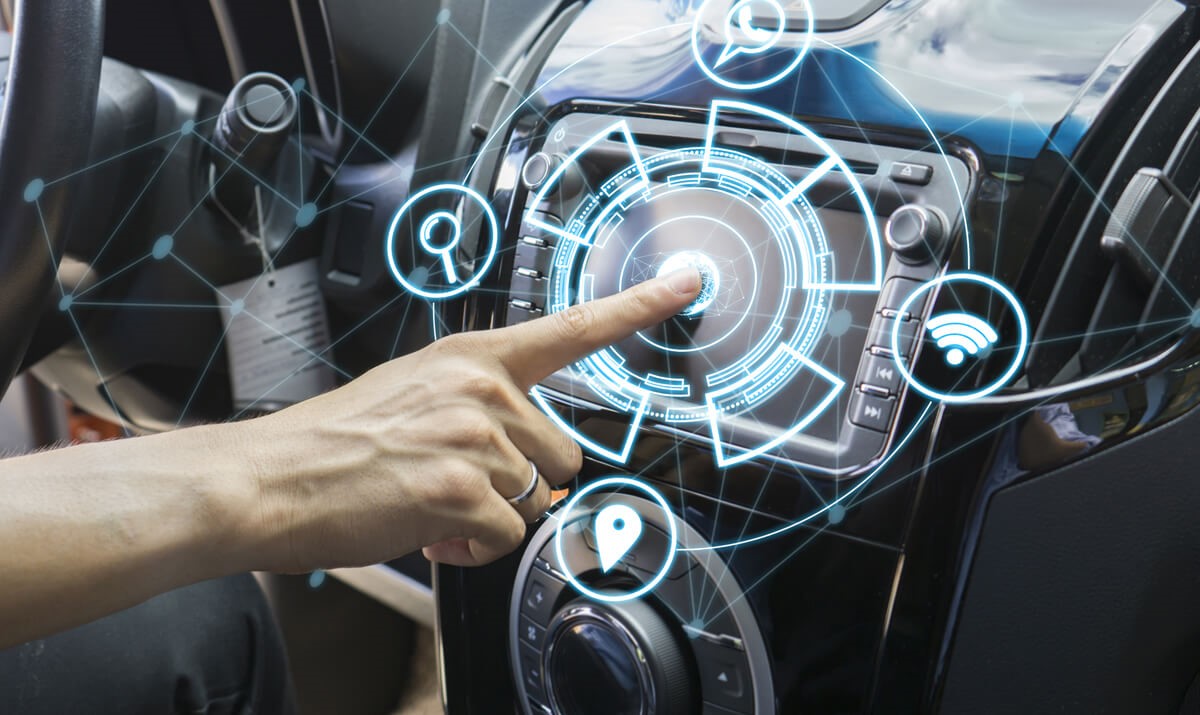
These days, car manufacturers use all kinds of gadgets and technical wizardry to make your car safer and let’s face it, slicker.
Here’s a list of the latest in-car tech that should be on every driver’s wish list.
Autonomous emergency braking (AEB)
Perhaps one of the most important innovations in car safety, AEB works by helping to prevent nose-to-tail collisions or the ‘rear-ender’.
According to Thatcham Research, experts in car safety, “It’s probably the most significant development in car safety since the seat belt and could save an astonishing 1,100 lives and 122,860 casualties in the UK over the next 10 years”.
How does it work? AEB uses sensors to monitor your environment; the speed you’re driving at; the traffic flow ahead and the distance between you and the car in front. If the system senses that you’re about to crash, it will apply the brakes, avoiding or at least minimising any impact
Lane-keeping assist
This relatively new technology is so important because it helps to prevent head-on collisions at high-speed. Given that these collisions result in more fatalities than low-speed shunts, this technology marks a real watershed in-car safety.
Lane-keeping assist technology can detect if your car is about to cross into the next lane without signalling and will then actively steer your car back into the lane. Clever eh?
Blindspot detection
Many new cars now offer blind-spot detection. These systems use cameras and radar to detect if there’s a vehicle or pedestrian in your blind spot. If this happens, the driver is alerted by a flashing LED light in the side-view mirror or dashboard and with some systems, an audible alarm will be triggered.
Adaptive headlights
Unlike traditional headlights, adaptive headlights can angle themselves to follow the road as the car corners. They work by using tiny sensors inside the headlight casing, which track the cars movement, speed and elevation.
As the car turns, so do the headlights, illuminating the road ahead, rather than blinding approaching drivers. Some newer systems can even adapt their brightness levels according to factors like the weather and the presence of oncoming traffic.
Dashcam
This clever little device records your journey while you’re driving. In light of the recent ‘crash for cash’ claims, dash cams can be used to prove who’s responsible in the event of an accident – helping to protect you from any fraudulent claim.
Most dash cams range from £30 to £500. However, you can get yourself a free dashcam by downloading the Aviva Drive app.
The free Aviva Drive app has an in-built collision detector that auto-records in the event of an accident. The app also monitors your driving, reviewing how you brake and accelerate. After 200 miles, it gives you a driving score and the chance to save money on Aviva car insurance. https://www.aviva.co.uk/insurance/motor/car-insurance/
